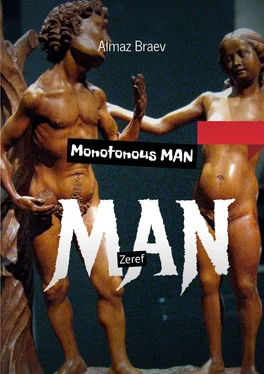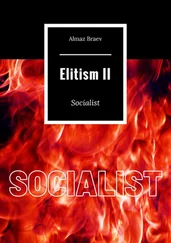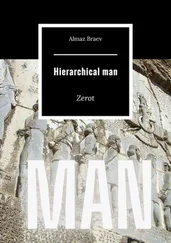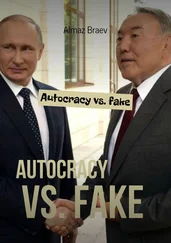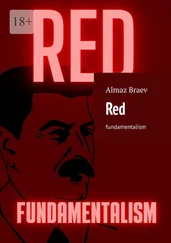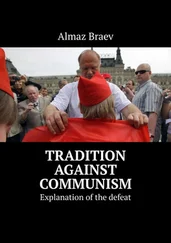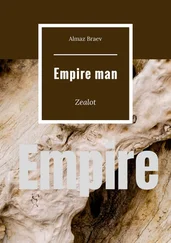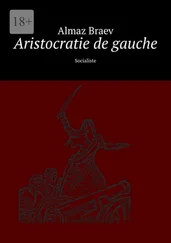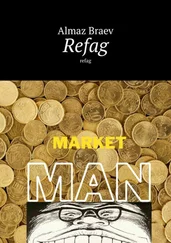Almaz Braev - Monotonous man. Zeref
Здесь есть возможность читать онлайн «Almaz Braev - Monotonous man. Zeref» — ознакомительный отрывок электронной книги совершенно бесплатно, а после прочтения отрывка купить полную версию. В некоторых случаях можно слушать аудио, скачать через торрент в формате fb2 и присутствует краткое содержание. ISBN: , Жанр: Прочая научная литература, на английском языке. Описание произведения, (предисловие) а так же отзывы посетителей доступны на портале библиотеки ЛибКат.
- Название:Monotonous man. Zeref
- Автор:
- Жанр:
- Год:неизвестен
- ISBN:9785005318152
- Рейтинг книги:3 / 5. Голосов: 1
-
Избранное:Добавить в избранное
- Отзывы:
-
Ваша оценка:
- 60
- 1
- 2
- 3
- 4
- 5
Monotonous man. Zeref: краткое содержание, описание и аннотация
Предлагаем к чтению аннотацию, описание, краткое содержание или предисловие (зависит от того, что написал сам автор книги «Monotonous man. Zeref»). Если вы не нашли необходимую информацию о книге — напишите в комментариях, мы постараемся отыскать её.
Monotonous man. Zeref — читать онлайн ознакомительный отрывок
Ниже представлен текст книги, разбитый по страницам. Система сохранения места последней прочитанной страницы, позволяет с удобством читать онлайн бесплатно книгу «Monotonous man. Zeref», без необходимости каждый раз заново искать на чём Вы остановились. Поставьте закладку, и сможете в любой момент перейти на страницу, на которой закончили чтение.
Интервал:
Закладка:
What you can and can’t do. It is very hard and clear. For example, you cannot eat a person (at least your blood man). Having sex with your family members is strictly prohibited. The Zerefs can’t stand up to teachers. Everything that the father says is always the appropriate indication for them. Violation of discipline is followed by punishment. The most severe punishment is that of breaking a taboo. And in other cases of disobedience, there are no less severe penalties. Growing up, little Zeref realizes that his main friends in the world are all people of his blood. His brothers, sisters, aunts, and uncles of his tribe, his family. They will accompany him all his life in the family collective. Relatives will condemn him or, on the contrary, support him morally, praise him, and encourage him. The main judges of Zeref’s life are relatives. It is their privilege to execute and pardon morally. Zeref will grow up, “suck” the cows of the tribe and will teach a new generation of his own family.
Morality is the second level of tradition.
This level is present in all traditional peoples as an accumulated experience of harmonious living and even survival. Morality, or traditional morality, is at the heart of all traditions, and among all peoples, it is approximately the same. If the people maintain and preserve their morals, they can safely look to the future. On one condition: if a given people and each person develops consciousness in themselves because everyone’s subconscious is rich in itself, it consists of dreams and vague chaos, and Zeref without teachers develops only instincts. If remove the teachers, at least humiliate them with their salary, the status of beggars, and the Zerefs can kill each other, not immediately, of course, but they will definitely do it. Without teachers and the elite, they will degrade like small children.
If there are no teachers, no Zerefs.
The satisfaction of physiology alone absolutely does not lead to development, if only because a person is a person and not an animal. It is necessary to somehow differ from the animal. Everyone should think, and everyone thinks so. There is a lot of good in a traditional person, and this good is as if innate. It is also subconscious-it is an inheritance from good ancestors. Such a person is said to be a promising person. Hardworking, easy-going. Or, on the contrary, belligerent and rebellious. But today, even this is not enough. There are many bad things in a person. 90% of a person are instincts. It is the Zerefs who manage to curb their animal instincts. It is the teachers and the elite who curb wild passions. Otherwise, civilization would not have received people not ready for modernization. The Zerefs who have lost their teachers but continue to do everything automatically that is, on the set skills of the past, become as if blind. They stumble in modern space. This often leads only to radicalism. If, for example, the traditional population immediately enters unprepared for market relations, they immediately prepare a “personality”, then all the habits of the past become convex. Zeref has a weak reflection, and few colors and assessments of actions are predictable. From a sudden meeting with new introductory materials, all Zerefs become radicals. Whatever the morally free Zeref does will be radical from now on. But he’s a “person” now! This is because there were very few thinking people in his family. And there are even fewer teachers. And there may not have been any good teachers at all. So Zeref man becomes a savage radical or a radical savage. Modern values and civilization have a terrible effect on the Zerefs.
The distant ancestors of humans are apes.
And there is a clear hierarchy in the chimpanzee herd. And the actual consciousness of man has been found “recently” – 50 000 years ago. And for millions of years, humans were apes. These monkeys gave man instincts. With them, the first Zerefs had to fight. But man manages to fight the animal principle in two ways: this is either to obey the teachers or to learn to think yourself, that is, to become a teacher yourself. Only in the movies, a child is born immediately from love, not even nine months go by. To become a teacher, you have to live your life or at least think fast. Modern Zerefs all know how to think. But they are still drawn to the revival of tradition because the only smartest of the Zerefs see the bulge or radicalism of their fellow humans that this is destructive radicalism.
What is good and what is bad.
Teachers, or the elite of the chosen, have always sought to tame the ape in their people. And to educate everyone so that a person is good and useful to society. Hence, the reflexes (good and bad) are driven into the subconscious. A person recognizes his relatives and automatically does them good. He tries to be useful. But when he sees an enemy of a tribe or village, he becomes ferocious and cruel. This is Zeref. His reflection is zero-low. Zeref. Zero-reflection. There are no halftones. The alien’s meeting will be radical. He’s a stranger. Nothing else is needed.
If a person overcomes the primary reflexes, he grows consciousness and soul. Here is such a Zeref who enjoys respect and honor in Revcon. But, of course, this is no longer Zeref, but who? You’ll learn more about that later. In short, less selfishness means more altruism. The worst of the Zerefs are callous, thick-skinned, selfish people. This is the garbage of history. But Zeref, do not forget for a moment, always grows. He grows morally and spiritually. He thinks he is. Furthermore, he sinks into himself. Although morality, of course, in troubled times is very lame.
It turns out that Zeref is primarily a very young person, a child, a small child, or almost like a child. Secondly, and most importantly, it is a traditional person. A man who knows his place in the ranks obeys the hierarchy. He knows what is good and what is bad according to the traditional law of his village. His actions are set. But not by themselves, but by the older Zerefs. Therefore, he thinks badly and does not seem to want to think at all. But it is necessary for him to follow the trail of the leader and remain silent on the path of war or hunting. The Zeref likes silence in the surrounding nature.
Chapter III
Beyond the Good
What is good for people, and what is its continuation in time.
Tradition is like a mode of good in time.
What is good? I’ll have to distract myself with such trifles. Good is something good for a person. Zeref man waits for good like a piece of meat sometimes. If another person gives a piece, no matter what, even sugar, even a loophole for a career, then he is good. If he does not give, then he is bad and greedy. This is the so-called Zeref bulge – too obvious a desire to satisfy this selfishness. So, we do not notice the tradition behind subjective good and bad. But in fact, for a convex market, self-interest is the culture. What is tradition? Everyone knows that this is a social habit that fathers introduce. What are they implementing for? So that the children have pieces. And these pieces are not just pieces of meat, and they are pieces of life. So consider tradition as a piece of your life, which should be lived according to the tracing paper of the fathers.
Tracing paper traditions: build a house (build a yurt), breed heirs, invite relatives or guests to visit.
In this form, tradition is blind. Because even if 90% of the people build houses and fill the tables with expensive dishes, food for the delight of guests, it is not good. This is, first, an indicator of the level of the owner of the house. This is how he fulfills the covenants and is very proud of it. But the traditional person is Zeref (reflection zero) he will act against all odds. He doesn’t even care who the priest and administrator are from now on. The main thing for a traditional person is a family idyll. Let relatives will gather for copious dastarhana (a table with food. – A. B.) and envy him. Zeref does everything for the show. Showing prosperity, Zeref shows his capabilities. Zeref does everything here according to the tracing paper. He has fulfilled and even exceeded the saturation and is happy about it. The greatest pleasure and the greatest pleasure of a well-fed, well-to-do Zeref is to see envy. So, during the feast, guests praised the table with viands and the host of the hospitable house.
Читать дальшеИнтервал:
Закладка:
Похожие книги на «Monotonous man. Zeref»
Представляем Вашему вниманию похожие книги на «Monotonous man. Zeref» списком для выбора. Мы отобрали схожую по названию и смыслу литературу в надежде предоставить читателям больше вариантов отыскать новые, интересные, ещё непрочитанные произведения.
Обсуждение, отзывы о книге «Monotonous man. Zeref» и просто собственные мнения читателей. Оставьте ваши комментарии, напишите, что Вы думаете о произведении, его смысле или главных героях. Укажите что конкретно понравилось, а что нет, и почему Вы так считаете.
